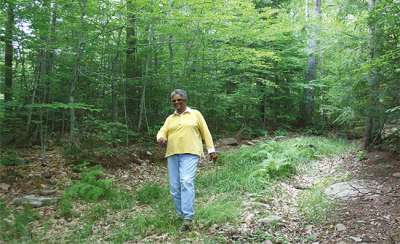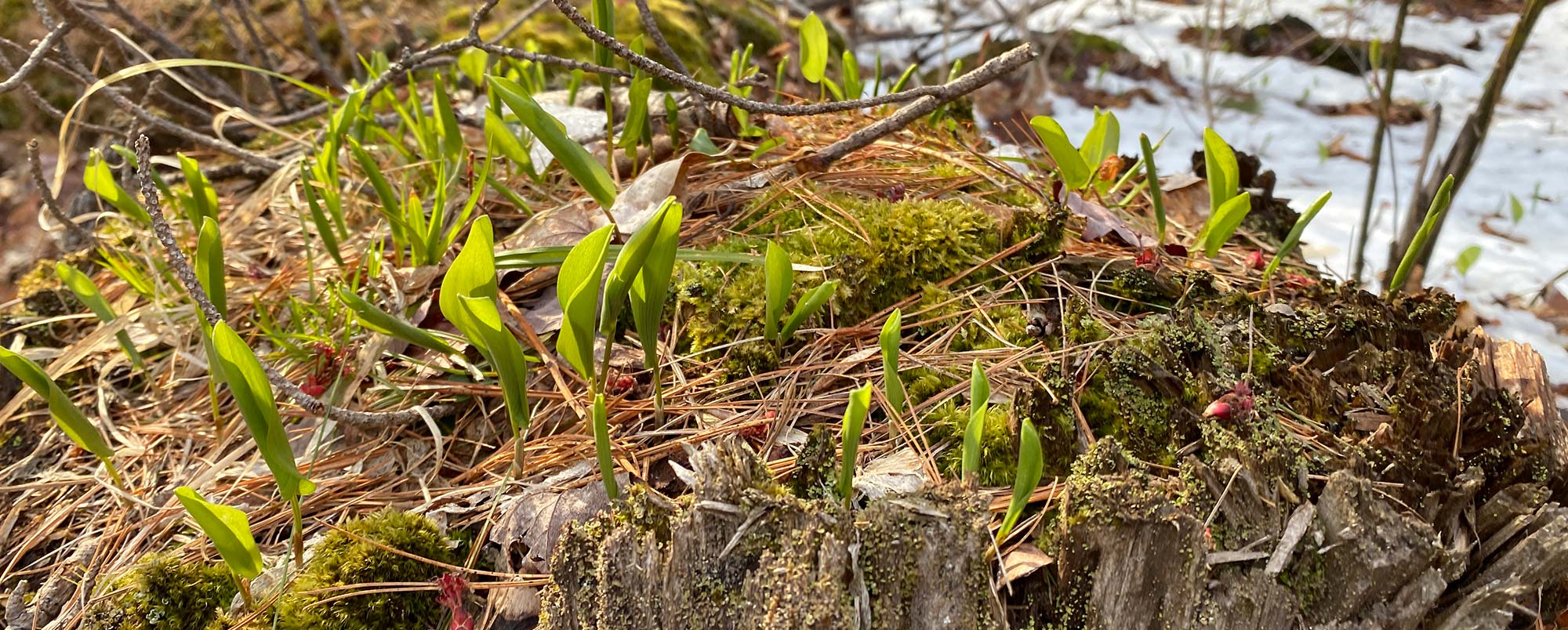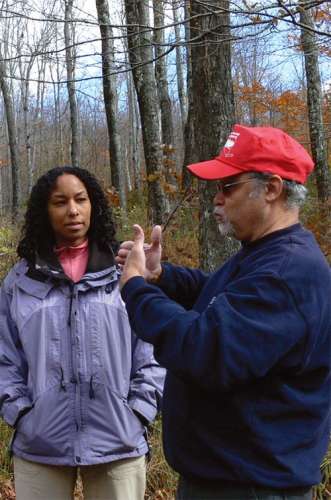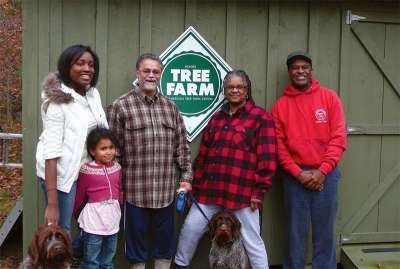
If you asked Sydney Antonio how she came to own 450 well-managed acres of forestland in upstate New York, she would tell you it had a lot to do with hating summer camp as a child.
She really hated it.
In 1959, her mom sent Sydney and her brother off to a rustic wilderness camp, where Sydney found the situation too structured, conforming, and impersonal.
“My mother dropped me off on Sunday,” Sydney recalled, “and Monday I wrote her a letter explaining my concerns.” Her mother didn’t get the letter, though, and so she never picked Sydney up. By Friday, her patience had run its course and she was determined to put an end to her camper’s nightmare. Sydney packed up her bags and ever so discreetly left the premises of the camp. She was all of 12 years old.
She walked to the side of the highway, stuck her thumb out, and started hitchhiking. Sometime later, a truck driver picked her up and drove her near the edge of the city before dropping her off. “He gave me enough money to take the subway home,” she added.
“When I got home I was prepared to get the licking of my life, but nothing happened. I was grounded, but I was allowed to read as many books as I wanted, so I was a happy camper at home,” she said.
She spent the rest of the summer at home in the city, an act that prompted her mother and maternal grandmother to go looking for some place that would get Sydney off the streets of the Big Apple during the summer months.
“They found this parcel,” said Sydney of the property she now owns in Haines Falls, New York. “It had been thoroughly timbered, so they got it cheaply.” Her mother bought 450 acres and her grandmother purchased another 275 acres in 1959. Because of their concerns about possible discrimination during the purchasing process, they formed a corporation to make the deal.
Sydney’s mother was an engineer, a graduate of Cooper Union. Her father was a Tuskegee Airman and lawyer. “The following year they built a house. They did it piece by piece. Being an engineer, mother knew what to do,” said Sydney. “I spent the rest of my summers here in Haines Falls, New York.”
Decades later, after 20 years as a passenger service agent with Pan American Airlines, Sydney decided to move permanently upstate away from the city. Her husband, Evon, shared her love of the outdoors, so they bought a parcel of land in the same county as Sydney’s mother’s land and built their own house.
Unfortunately, their house burned down after an explosion caused by a leaking propane valve in November 1997.
They decided to rebuild their home, but this time they did it on Sydney’s mother’s land. Their new domicile was built on the family compound and they’ve remained ever since. Today, Sydney and Evon own 450 acres of land, about 445 of which is forested. The remaining 5 acres or so is just the land around their house and about an acre of water.
Their woodlot is made up mostly of hard maple, red oak, white ash, yellow birch, and black cherry. Hemlocks and other conifers make up the remaining 15 to 20 percent. “Some years they have some commercial value, and other years they have none,” she says of the evergreens. “They always have ecological value, though.”
Such a large, unbroken landscape naturally supports a wide variety of flora and fauna. “I saw a momma bear the other day and two cubs,” she said.
Sydney and Evon manage their forestland primarily for sustainable hardwood timber production, with indirect benefits to the environment and wildlife, she said. As part of harvests, the tops and unmarketable portions of trees are left on the forest floor to protect regeneration from deer browse, provide wildlife habitat, and replenish soil nutrients as they decay, she added.
Both Sydney and Evon are Master Forest Owners, having completed the required training through Cornell University. Working closely with a consulting forester, they developed a management plan that guides their forestry activities. The plan makes them eligible for 480-a, New York’s current use program, and also serves as the basis for their certification in the American Tree Farm System.
“New York State encourages better management of forest land,” Sydney added. “The forest is healthier as a result. You get better production because the forest land is properly managed, and there’s less negative environmental impact such as soil erosion and sedimentation caused from storm-water runoff.”
Her mother also managed the property for timber, as far back as 1961. “With multigenerational stewardship and installation of best management practices for erosion control, particularly given the steepness of the terrain, there was very little loss when Hurricane Irene hit in August 2011,” she said.
“We had minimal damage to the interior logging roads. However, our right-of-way, which provides the only access to the property and serves as the haul road for logging operations, did not fare as well, in spite of our efforts. The enormous water volume breached our bridge at the confluence of two intermittent streams and severely undermined the roadway. After the repairs were completed, we were able to obtain partial reimbursement through the Emergency Forest Restoration Program, administered by the U.S. Department of Agriculture. Because we had such good management, we didn’t lose as many trees as some people did. DEC was pleased with what they saw,” she said.




Discussion *